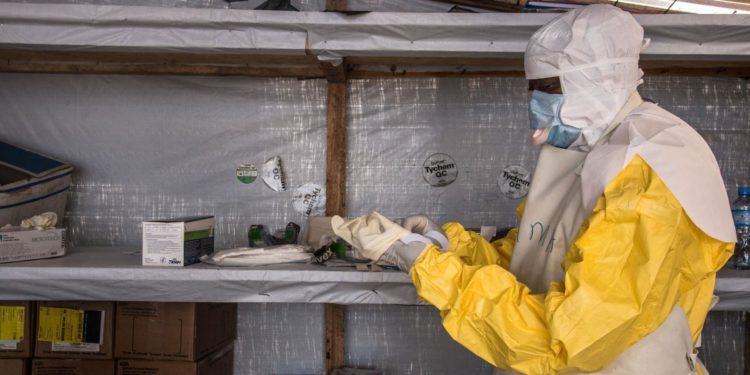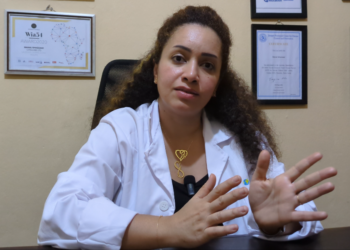Ghana’s health authorities have confirmed the country’s first cases of the deadly Marburg Virus Disease (MVD), after results of confirmation tests conducted in Senegal came back positive.
Marburg is a highly infectious disease that falls in the same family as the virus that causes Ebola.
The Ghana Health Service (GHS) had announced the outbreak on July 7th, after two people displayed signs and symptom of the disease. Preliminary tests at the Noguchi Memorial Institute for Medical Research of the University of Ghana showed they were positive for the deadly virus.
The cases were recorded in country’s southern Ashanti Region, where both patients died, according to the authorities.
Confirmation tests at a WHO recommended laboratory were required as per the standard of the international health regulations. The Institute Pasteur in the Senegalese capital Dakar is the closest in the region.
The GHS says 98 people are now under quarantine as suspected contact cases.
The WHO Africa Regional Office, which is supporting Ghana in the response efforts, praised the West African country’s swift response.
“This is good because without immediate and decisive action, Marburg can easily get out of hand,” the WHO Africa Regional Director, Dr Matshidiso Moeti, was quoted in a statement.
The UN health agency said it had been working with the Ghanaian authorities to prepare for a possible response when the cases were first detected.
MVD is a highly infectious viral haemorrhagic fever that affects both humans and non-human primates. The virus that causes the disease is in the same family as Ebola, which causes the Ebola Virus Disease, which ravaged West Africa between 2014 and 2016.
This is the second outbreak of MVD in the West Africa region after Guinea confirmed a single case in August 2021.
Other countries in Africa that have previously recorded cases of the MVD are Angola, the Democratic Republic of the Congo, Kenya, South Africa and Uganda. The deadliest outbreak of them all, according to WHO, occurred in Angola, where it claimed more than 200 lives in 2005.
Marburg is known to be transmitted to humans from fruit bats as its natural host. In 2018, US and Sierra Leonean scientists found bats infected with the virus.
The incubation period of the virus is between two and 21 days, according to WHO. Illness from the disease begins abruptly, with symptoms including high fever, severe headache and malaise.
Case fatality rates have varied from 24% to 88% in past outbreaks depending on the strain of the virus, according to scientists.
There is no vaccine or treatment approved to treat the MVD, but supportive care, including rehydration with oral or intravenous fluids, and treatment of specific symptoms, have been known to increase chances of survival.
Officials in Ghana are reportedly warning people to keep away from caves and to thoroughly cook all meat products before consuming them.






















